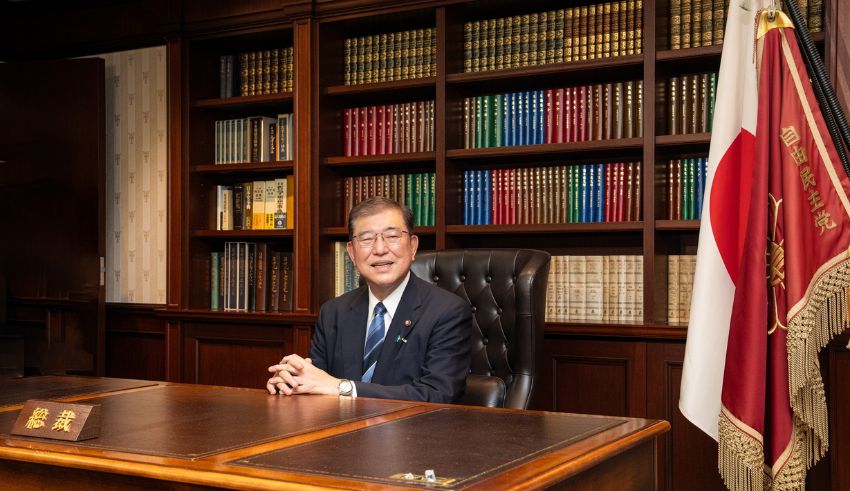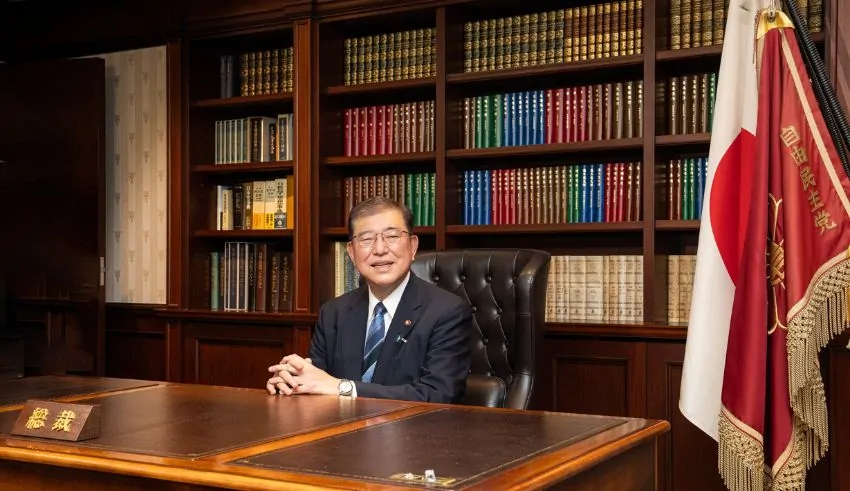

(C) Shigeru Ishiba
Despite a notable loss in parliamentary elections when the coalition of the ruling Liberal Democratic Party (LDP) fell short of obtaining a majority, Japanese Prime Minister Shigeru Ishiba has promised to carry on leading. With a dramatic drop in parliamentary seats—from 259 to 201—this election represented the LDP’s most significant loss since 2009, according to estimates by NHK, the state broadcaster for Japan. While its new leader, Keiichi Ishii, lost his seat, Komeito, the LDP’s coalition partner, also suffered a blow losing eight seats and dropped from 32 to 24. This change highlights general public discontent with the LDP, which has virtually run Japan’s government almost nonstop since 1955, interspersed only with brief cabinets headed by the opposition.
For Ishiba, who assumed office just weeks before on October 1, the results provide a difficult challenge. After years of portraying himself as a reform-minded alternative inside the LDP, vociferous against the status quo supported by his predecessor, Shinzo Abe, his election as Prime Minister came after. Drawing on his promise of change inside a generally conservative party, Ishiba’s relative popularity among voters helped him to climb to the premiership. Though voters concentrated their anger on a recent corruption scandal involving LDP officials, which saw party members linked in financial misbehavior and use of funds obtained through political events, his appeal inside the LDP has not transferred into more general public support. Under the Constitutional Democratic Party (CDP) and former Prime Minister Yoshihiko Noda, who ran vigorously on an anti-corruption platform and increased their seats from 96 to 148, this scandal energized the opposition.
Political experts and the public both have speculated on whether Japan’s opposition may take advantage of the LDP’s decreased capacity to create a government following the election. Though the opposition has great achievements, the lack of cohesiveness among Japan’s opposition parties—which cover a wide ideological range—complicates any such change. With a liberal platform, the CDP leads the opposition bloc; the Democratic Party For the People (DPP) stands more centristically; the Japan Innovation Party (Ishin) reflects a “reformist conservative”. Other, smaller opposition groups include the Communist Party, the anti-immigration Conservative Party of Japan, and left-leaning party Reiwa Shinsengumi calling for the sales tax of Japan to be eliminated.
Given that memories of Japan’s last opposition-led government from 2009 to 2012 are distinguished by political turbulence and infighting, this variety of opinions inside the opposition makes it challenging to build a stable governing coalition. Although there is little likelihood of a successful opposition takeover, Yu Uchiyama, a political science professor at University of Tokyo, said that the ideological variety of the opposition makes it difficult for any one faction to acquire the majority needed for efficient government.
From social reforms to economic policies, the CDP, DPP, and other opposition groupings would struggle to agree on important concerns even if their temporary alignment would be possible. Leader of the CDP Noda and other opposition leaders have voiced doubts about the viability of a consolidated administration devoid of a well-defined agreed agenda. As therefore, even if the opposition gains more prominence after the election, its capacity to replace the LDP is still questionable.
Ishiba has said that a minority government could be his most sensible choice as he has a 30-day deadline to build one. Under such a government, he would be able to hang onto power even if he would have limited capacity to pass laws without outside help. But Ishiba’s attempts to create coalitions spanning political boundaries have run up opposition. CDP head Noda, citing past no-confidence votes against the party, has categorically ruled out the prospect of working with the LDP. Likewise, leader of the Japan Innovation Party Nobuyuki Baba rejected any possible cooperation with the LDP, emphasizing the party’s recent ethical problems as an obstacle to alliance.
Still, there is a chance for modest cooperation. Under Yuichiro Tamaki, the DPP has shown openness to a “partial coalition,” a flexible framework whereby cooperation on particular policies would be undertaken without complete integration into a formal coalition. This strategy might enable the DPP to keep its freedom while giving Ishiba some parliamentary backing to forward particular agendas. Although a partial coalition does not have the stability of a complete partnership, it could provide Ishiba with a temporary fix as he tries to steady his government.
Reduced influence of the LDP has led to conjecture on Ishiba’s future inside the party. Given the party’s considerable losses under his direction, many have questioned whether he can remain prime minister; some analysts have even suggested he should quit, therefore shortening his tenure in Japan. Dismissing these worries, Ishiba says he is committed to preventing a “political vacuum” and that his leaving will simply increase the uncertainty inside the Japanese government. His persistence on keeping shows his will to keep stability in face of public declining popularity and considerable internal party criticism.
Though sections within the LDP have begun to doubt their commitment, Ishiba’s will might not be sufficient to guarantee his place permanently. Observers point out that former Prime Minister Abe’s adherents, who were underprivileged under Ishiba’s rule, would see the LDP’s declining condition as a chance to question Ishiba’s leadership. Aiming to rebuild the party’s image and support its conventional policy stances, Uchiyama claims that Abe-aligned legislators could grab on this electoral loss to push for fresh leadership.
However, because the LDP’s seat count dropped so dramatically, some members—at least in the short future—may give party unity top priority over political changes. Particularly at a time when the opposition is gathering steam, this “high-road” strategy would entail banding together behind Ishiba to stop more disintegration and avoid weakening the LDP.
Ishiba has many difficulties ahead trying to rebuild confidence in his leadership and raise the LDP’s reputation. Dealing with public unhappiness over recent corruption scandals and strengthening the party’s dedication to openness and moral government will first take front stage. Rebuilding public confidence and sustaining his government could depend much on Ishiba’s capacity to execute important reforms and separate the LDP from corruption.
Apart from managing internal party dynamics, Ishiba will also have to negotiate a parliament that is becoming more fractured where policy concessions are crucial. Without a majority, he will be obliged to negotiate on a spectrum of legislative concerns—from social programs to economic policy—with opposition parties. To pass important policies appealing to his party as well as possible coalition partners, this procedure will probably call for both strategic diplomacy and significant concessions.
The next weeks will be crucial for deciding Prime Minister Ishiba‘s tenure. Maintaining control will depend on his success in establishing a minority government or arranging partial alliances; any mistakes could throw his government more off-balance. Under a period of political turmoil in Japan, Ishiba’s leadership will be tested critically as he tries to reconcile the conflicting needs of governance, party unity, and public confidence.
The Golden State Warriors were dealt a double whammy on a most disappointing April 2 during the NBA playoffs. This…
GE2025: More rallies will take place on April 24 by five parties. Public transport is a must. Singapore: Current scenes…
In a historic move, Malaysia has been the first nation to incorporate Formula One (F1) sourced data-logging technology into its…
The German food delivery service Delivery Hero plans to stop operating Foodpanda in Thailand as of May 23, 2025 after…
HORI has unveiled a collection of officially licensed accessories for the upcoming Nintendo Switch 2 which will release on June…
30-year-old Lucy Guo has now made it into the record books because she has been the youngest self-made woman billionaire…
This website uses cookies.
Read More